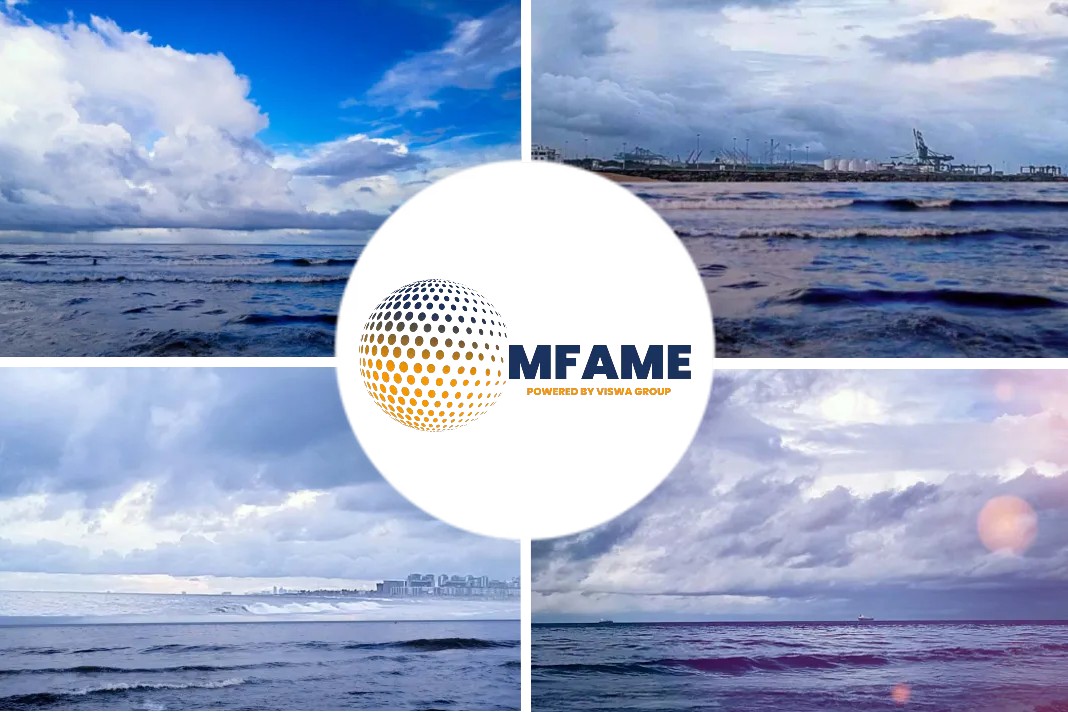- Like many importers, Peppermill is feeling the effects of serious bottlenecks in the global container shipping industry, which have led to delays and pushed up prices.
- The price rises have been triggered by a long-running period of intense disruption in the container shipping industry, initially provoked by the Covid outbreak.
- Industry analysts Sea Intelligence have highlighted the fact that 11 of the biggest deep-sea carriers made a combined operating profit of $16.2bn in the first three months of the year.
A BBC news source by Theo Leggett says that shipping disruption has crippled the industries in UK and it has also increased the prices of the goods.
Peppermill Interiors
Mr Humphreys is managing director of Peppermill Interiors, which supplies furniture for homes as well as to the bar and restaurant trade.
Like many importers, Peppermill is feeling the effects of serious bottlenecks in the global container shipping industry, which have led to delays and pushed up prices.
The company, based near Cannock, in Staffordshire, has been operating for 25 years, and currently employs 40 people.
Although it does use suppliers in the UK, roughly half of its stock is imported from East Asia, mainly from China. It will typically bring in between 200 and 250 containers each year.
Now, Mr Humphreys says, the rise in shipping costs is taking a heavy toll on his business. “We physically can’t absorb the extra costs. We have to pass them on,” he explains.
“A single armchair used to cost us £12 to bring in from China. It now costs us £100. So the price we sell the chair for has gone up by 25% – but that isn’t extra profit for us.
“Some of the cheaper items, they’ve doubled in price. There’s no point bringing them in any more,” he said.
He makes it clear who he blames. “It’s all going to the shipping lines. They’re working together. It’s like a cartel out there.”
Prices have increased
The price rises have been triggered by a long-running period of intense disruption in the container shipping industry, initially provoked by the Covid outbreak.
A collapse in demand during the early stages of the pandemic was followed by a period of frenzied activity, as people who were forced to stay at home rather than travel or socialise ordered large quantities of consumer goods.
But this provoked a raft of problems, including acute congestion around deep sea ports and a shortage of containers for new consignments, because too many of them were sitting on quaysides around the world.
Port congestion
Andy Blakemore agrees. He runs Arcadia Freight Services, in Walsall. A freight forwarder, he arranges the shipment of goods from supplier to customer.
“There’s collusion, definitely”, he says. “In China we deal with about 12 shipping lines. Our agents are supposed to get the best rates.
“But even though they should be completely independent, they’re all sticking around the same prices. And if they’re all sticking together, it’s something we have no control over,” he said.
Gavin van Marle is managing editor of the logistics industry newsletter, The Loadstar. He says there’s no question that liner companies are taking advantage of the capacity crunch.
“They’re certainly making hay while the Sun shines”, he says. “It’s definitely opportunistic, but whether there’s active collusion is another question”.
Higher prices
Importers in Britain, meanwhile, face another problem. Congestion at UK ports, particularly Felixstowe, last year prompted shipping lines to cut the number of direct services – with many vessels from East Asia heading direct to European ports such as Antwerp or Rotterdam.
That in turn means significant extra costs for importers – because space on direct services is at a premium, while containers offloaded at EU ports have to be shipped onwards to the UK.
One importer, a housewares supplier who preferred not to be identified for fear of being “blacklisted” by shipping firms, told the BBC consumers were in for a shock over the coming months.
Did you subscribe to our daily newsletter?
It’s Free! Click here to Subscribe!
Source: BBC


















